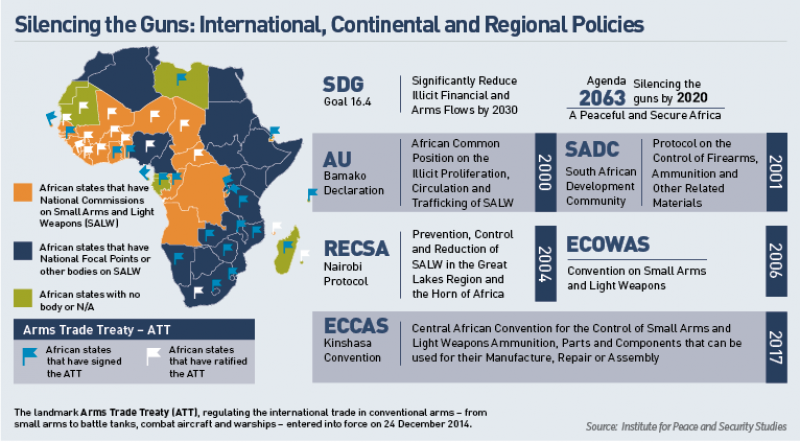What are some of the initiatives on the ground?
Member states, civil society, the private sector, the UN and other international and local NGOs are doing a fantastic job on the ground providing basic counsel, assisting the affected communities and supporting reconciliation. A lot is happening on the continent – we have success stories of combatants disarming and terrorists being demobilised. AU troops are deployed in Somalia, Central African Republic, Darfur, and the Lake Chad Basin. We have community projects on reconciliation and peacebuilding
What is the role of women in all this?
It is African women who are leading in the search for peace in Africa. One of the key partners in silencing the guns is women because of the significant role they play. However, at peace negotiating tables and in the media their impact is not highlighted. The amount of mediation these women do between one village and another is amazing! Africa must learn that you don’t win the game with half the team on the field and what happens to one gender affects the other. Women are the ones who will drive Africa’s prosperity. This is great coming at the 20th anniversary of UN Security Council Resolution 1325 on women, peace and security.
How is the UN helping to achieve a conflict-free Africa?
The cooperation between the AU and the UN is working well. The UN has a comparative advantage as it is well-represented in Africa. All the UN agencies are on the ground to support the communities. We need to synergize and partner more at the national level.
Who else is involved?
All AU member states, 57 other countries from across the globe, and the European Union as a major partner. At the continental level, the Regional Economic Communities are coordinating action. International and national organisations, civil society, youth, women, the diaspora – everyone is involved. The message is: peace is not a preserve of governments. We all have a role to play to achieve peace in Africa.


